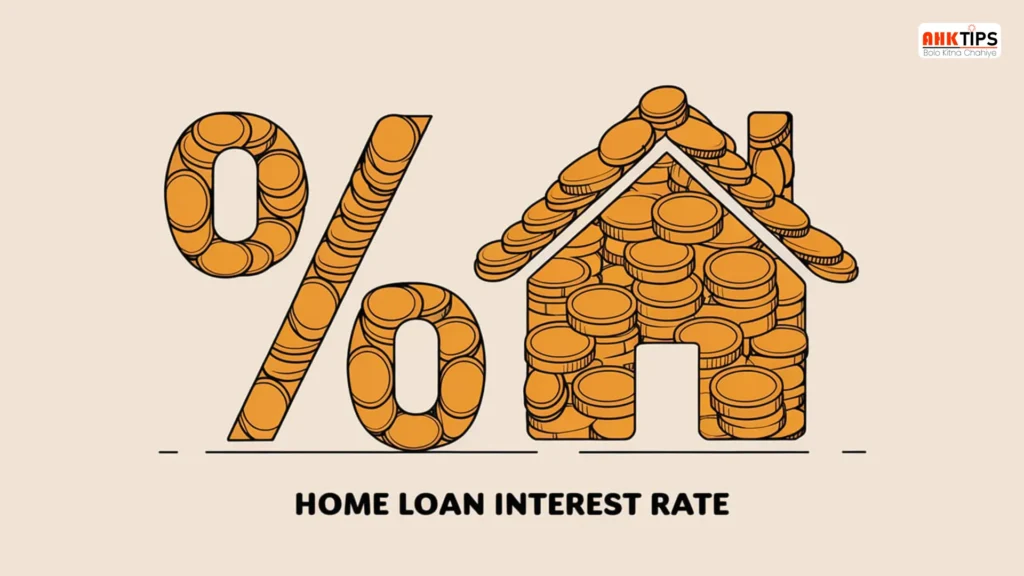Summary
Home loan settlement takes place when a borrower cannot repay the entire home loan due to financial hardship, and the bank agrees to take less money to close the account. Unlike foreclosure or refinancing, settlement lowers your credit score and is recorded as “settled” on your credit report, having a bearing on subsequent loans. It’s often taken as a final option during instances such as loss of job, medical issues, or a dire financial crisis. Before settling, explore safer options like loan restructuring, EMI moratorium, refinancing, or top-up loans. To protect your property, negotiate with the bank, stay in touch, and provide proof of hardship. While settlement offers temporary relief, it has long-term effects. Rebuilding credit after the settlement is possible by paying debts on time, using secured credit, and regularly checking your credit report.
Introduction
Home loan management can spiral out of control when unexpected financial crises strike, such as job loss, illness, or business loss. At this point, the majority of borrowers use home loan settlement as a last resort to avoid legal action or losing their homes. But home loan settlement is not the same as repaying the loan in full or otherwise closing it normally—it has long-term repercussions, particularly on your credit score. Knowing exactly what home loan settlement means, when to think about it, and how to go about doing it without endangering your property is important. This handbook explains home loan settlement in easy-to-understand language and offers real-life advice about how to negotiate with banks, protect your house, and find safer options. If you are having trouble paying back, this story will help you make smart and sensible financial decisions.
What Is Home Loan Settlement?
Most borrowers are familiar with the word “settlement” and believe that it’s a great thing to end a loan. However, in the real world, loan settlement is quite different from repaying a home loan under the usual circumstances. Knowing the home loan settlement meaning can prevent you from long-term financial issues and enable you to make the right choice in an emergency.
Home loan closing is when a bank settles for less than what you owe as a way to close the loan. This typically occurs when a borrower cannot pay back due to severe financial distress.
The balance is either adjusted or written off by the bank, and the account is listed as “settled” rather than “closed” in your credit report. This is a permanent effect on your credit record.
How Settlement Occurs in a Home Loan
Settlement is not a typical provision that is available to every borrower. It normally comes into play when:
- The borrower has been in default on the loan for a very long period
- The property is no longer worth sufficient to recover the entire loan amount
- The borrower has no apparent ability to pay short-term
In these instances, the bank might provide a one-time settlement to retrieve at least a portion of the loan. The method involves negotiation and supporting documents to demonstrate actual hardship.
How Is It Different from Foreclosure?
Foreclosure
The Foreclosure involves paying the entire loan remaining outstanding before the due date and shutting the loan entirely. Foreclosure reflects financial strength and enhances your credit record. It is normally conducted when a borrower has a lump sum payment or desires to lower interest expenses.
Settlement
Settlement is the reverse. It indicates that you were unable to repay the entire loan and asked the bank to settle part of it. This is a negative hit on your credit score and future borrowing capacity.
How Is It Different from Refinancing?
Refinancing
Refinancing a home loan involves shifting the loan to another lender on more favourable terms, like a reduced interest rate or extended repayment period. It’s a great money move when it’s done correctly and doesn’t hurt your credit.
Settlement
Home loan settlement is not a financial strategy but an indication of financial stress. It is viewed as a last option and hurts your creditworthiness for decades.
How Is It Different from Restructuring?
Restructuring
Restructuring is all about altering the terms of the loan with your existing bank. It could mean lengthening the time period of the loan, reducing the EMI, or altering interest rates. It is all about making your payment manageable and tending to not hurt your credit report.
Settlement
With a settlement, the bank takes less than what you borrowed. This gets registered as a “settled” account and lowers your credit score considerably.
When Should You Consider Settling a Home Loan?
Home loan settlement is not a normal decision. It is a serious action only when a borrower is unable to pay back the loan because of unavoidable financial distress. Knowing when to opt for home loan settlement avoids unnecessary credit harm and picking the right time if there is no other option.
Home loan settlement is the process by which the lender accepts a part payment for your home loan account settlement. It primarily happens when the borrower is unable to meet the amount due because of severe financial problems. If settled, the loan will be marked as “settled” in your credit report, which lowers your credit score and affects your ability to secure future loans.
Circumstances That Can Warrant Home Loan Settlement
Job Loss or Drastic Income Loss
If you’ve lost your job and can’t secure new employment in the short term, your capacity to repay EMIs would be hampered. This is particularly serious if you were the only or major breadwinner in the family. If all savings are depleted and there is no income forthcoming, you might opt for a settlement facility.
Medical Emergency or Disability
Long-term illness, disability, or medical treatment that impacts earning capacity is an acceptable reason as well. If you are unable to work because of your condition, and no other member of the family can assume the repayment, it might be a good time to sit down with the bank and discuss settlement.
Major Financial Crisis
If you experience an unforeseen financial occurrence like a business loss, court case, or natural disaster leading to financial loss over the long term, a settlement might be your only option to circumvent litigation or forfeiture of other assets.
How to Time a Home Loan Settlement
Look at All Other Alternatives First
Prior to settlement, attempt restructuring, a reduction in EMI, an increase in loan tenure, or selling the property. Settlement should be the last option after discarding all other modes of repayment.
Wait Until the Loan Turns NPA
Banks will not make any settlement unless your loan becomes a Non-Performing Asset (NPA). This typically follows after several missed payments for six months or more. The bank might consider negotiating a one-time settlement once your account falls under the NPA classification.
Keep All Documents Ready in Advance
To substantiate your plea, have documents ready that reflect your inability to pay, such as letters of job termination, medical documents, income certificates, or bills of debt. Banks will not negotiate a settlement unless there is solid evidence of hardship.
Think Long Term Before Deciding
Although settlement can provide temporary assistance, it has long-term effects. It will decrease your credit score and stay on your credit report for several years. Your future loan approvals, credit card applications, or even employment opportunities in finance-related fields could be compromised.
How to Negotiate Home Loan Settlement Without Losing Your Property
Battling your home loan and worrying about losing your property is a nerve-wracking situation. But it is achievable to negotiate a middle ground with your lender. You can learn how to negotiate a home loan settlement without losing your home, and thus safeguard your property while coping with financial hardship with grace and planning.
What Does Home Loan Settlement Involve?
Home loan settlement is where the lender accepts a lower sum to settle the loan, most commonly due to financial difficulties. It is not like normal payment, foreclosure, or loan termination. Yet, settlement does carry some risks, such as a negative entry on your credit report and potential loss of the property if not done properly.
Tactics to Settle Without Losing Your House
Discover Partial Payment Settlements
If it is not feasible to pay the total outstanding loan, you can provide a part-lump sum payment as settlement. Banks readily accept this at times if they feel recovery is remote by auction or legal means.
How This Helps
This approach demonstrates commitment and financial prudence, which can make banks negotiate. It also keeps matters on the table without activating recovery steps leading to property confiscation.
What to Do
Visit your bank with an offer, backed up by papers such as proof of income, banking statements, and a hardship letter. Propose a sum you can pay soon and justify why it’s fair considering your present financial circumstances.
Try Loan Restructuring First
Always ask for loan restructuring before discussing settlement. Several banks provide restructuring options so that the loan is not converted into a loss account.
Options Under Restructuring
- Lower monthly payments
- Extended loan term
- Temporary interest-only payment
- Moratorium on payment
Benefits
Restructuring does not hurt your credit rating like a settlement and allows you to keep the ownership of your property while dealing with reduced payments.
Request Mediation Through Legal or Financial Advisors
If negotiations with the bank are not progressing, you can ask for mediation through legal or financial advisors. Mediation is an official negotiation facilitated by a third party, including a lawyer, financial advisor, or debt counsellor.
Why It Works
- It shows seriousness in paying the debt
- It protects your legal rights
- It allows discovering mutually acceptable terms without threatening to sell your property.
This is particularly helpful if your case is predicated upon controversial payments or special hardship cases.
Stay Out of the NPA Zone
A loan turns into a Non-Performing Asset (NPA) if payments are overdue for more than a fixed duration, say 90 days. Once your loan is NPA, the bank may turn to legal recovery or auction the property.
Preventing This
- Communicate early and often
- Make small, frequent payments to demonstrate intent
- Ask for a moratorium or temporary relief if required
- Staying in contact with your lender keeps options open and delays forceful action.
Sell the Property Yourself If Necessary
In case keeping the house becomes impossible, offer the bank that you will sell the property by yourself. A direct sale will provide you with a better price than a bank auction and can enable you to clear a large part of the loan.
How It Helps
- Prevents forced auction
- Could provide for partial payment
- Minimises the harm to your credit history
Banks will wait if they believe that there is a good-faith attempt to pay the debt and forego litigation.
Support Your Case with Proper Documents
Good documentation is crucial when negotiating any form of settlement. Present and organise
- Letters of record documenting the loss of employment
- Evidence of medical bills
- Statements of income and expenses
- Summary of debt or other obligations
- A well-documented request is more likely to be accepted and proves that your case is real.
Effect on Credit Score and Subsequent Borrowing
Home loan settlement provides temporary relief but has serious long-term financial implications. It is important to know what this does to your credit profile before you proceed. This handbook helps you understand how your credit score upon home loan settlement is impacted and how you can rebuild it while retaining your property.
What is the Effect on Your Credit Score After Settlement?
When you settle a home loan, your bank flags your account as “settled” rather than “closed” or “paid in full.” This designation is reported to credit bureaus and has a direct impact on your credit score.
Short-Term Impact
After a settlement has been taken, your credit score may also have a large role to play. Settlement indicates to lenders that you cannot repay the whole debt. Having a bad record may make it hard for you to get credit cards, other financial services, and new loans.
Long-Term Impact
The “settled” status is kept on your credit report for several years. It can remain visible for five to seven years, depending on the credit bureau’s policies. For all these years, lenders can label you as high-risk, and your borrowing limit may be restricted even if you seek small credit products.
Other Effects Beyond the Credit Score
Difficulty in Getting Future Loans
Most lenders consider your credit history and score at the same time. A settlement of a past loan can trigger rejections or increased interest rates on future loans, even after your score bounces back later.
Impact on Co-Applicants or Guarantors
If someone else co-signed the home loan, their credit profile may also be affected. Banks report the settlement under all associated borrower names, which can impact their future borrowing as well.
Delays in Approvals for Finance
Home loan settlement will lead to delays in case you apply for government jobs, visa processing, or other official clearances where a clear financial background is required. Some sectors like banking and finance are very careful regarding the status of the credit report.
How to Rebuild Credit After Home Loan Settlement
A settlement is not the end of your economic future. With time and planning, you can repair your credit score and become eligible for fresh loans once again.
Begin with Secured Credit Products
Banks provide secured credit cards or loans based on fixed deposits. These are useful instruments to demonstrate repayment responsibility. Repaying these punctually helps enhance your credit score over time.
Pay Other Debts on Time
If you have outstanding loans or credit cards, pay them on time and not a day late. On-time payments consistently are indicative of a reliable borrower and improve your credit score.
Maintain a Healthy Credit Mix
A combination of various credit types—secured and unsecured—managed effectively contributes to a stable credit profile. Don’t apply too many loans simultaneously or utilize your entire credit limit.
Check Your Credit Report
Review your credit report from companies like CIBIL or Experian periodically. If there are errors or old settlement entries, you can dispute and get them corrected. Monitoring changes keeps you informed and enables you to prepare accordingly.
Communicate Future Intent to Repay
If you improve your economic position, settle the outstanding amount at a later date. Your bank may accept paying the difference and settle the status from “settled” to “closed.” It will help you recover your credit rating earlier and soften the adverse effect of the previous settlement.
Alternatives to Home Loan Settlement That Protect Your Home
Securing a home loan can provide temporary relief, but it can damage your credit rating and jeopardise your property. Before opting for settlement, you should consider alternatives to home loan settlement that enable you to decrease financial stress without compromising foreclosure or ruining your financial history.
Why Find Alternatives?
A home loan settlement can leave a bad mark on your credit report. It also decreases your likelihood of obtaining future loans. Most importantly, it can cause you to lose your house if the lender can recover the outstanding amount through the court. For this reason, safer alternatives are vital when you’re having difficulties paying back home loans.
Safer Alternatives That Can Help You Retain Your Home
EMI Moratorium
An EMI moratorium is a temporary suspension of your EMI payments. In difficult financial situations, banks grant a moratorium for a short while. This assists you in covering your living expenses without missing payments on your loan.
How It Works
You ask the bank to defer EMI payments for a short while. Interest can still be charged, but you prevent missing payments and harming your credit.
When to Use
- Sudden job loss
- Medical emergency
- This is a short-term cash flow issue.
Loan Restructuring
The Loan transfer is the process of changing the terms of your current home loan so that it becomes simpler to repay. Loan transfer is one of the most surefire alternatives to home loan settlement and is usually supported by RBI norms.
Choices Under Restructuring
- Lower rate of interest
- Increase in transfer period
- Reduction of EMI temporarily
- The overdue amount is converted into another loan
Advantage
You keep your loan in good standing and retain ownership of your property without credit deterioration.
Top-Up Loan to Regularise Arrears
If your home loan account is falling into arrears, and you require funds to regularise it, take a top-up loan. A top-up loan is an extension of the amount lent over your current home loan, typically at the same interest rate.
Why It Works
- Clears outstanding EMIs
- Keeps the account active
- Evades penalties and legal notices
You need to have some repayment track record and sufficient creditworthiness to be eligible.
Government Relief Schemes
In times of economic disturbances, natural calamities, or pandemics, the government might come up with loan relief schemes. These include interest subventions, postponed payments, or emergency support funds.
Examples
- Credit guarantee schemes
- Subvention for first-time home buyers
- Financial assistance under the priority sector lending
What to Do
Keep yourself updated from your bank or government websites. Approach early when these schemes are launched for application.
Refinancing or Balance Transfer
Refinancing involves shifting your home loan to another bank with improved terms. A balance transfer can provide you with reduced interest rates, increased tenure, or improved repayment terms.
- Benefits of Refinancing
- Less EMI burden
- New beginning with new terms
- Option of top-up facilities with a new lender
Refinancing is best if your credit history is still intact and you do not wish to fall behind on payments.
Ask for Payment Rescheduling
At times, all it takes is rescheduling your EMI due dates or requesting a grace period to relieve your financial stress. Lenders are usually willing to make such small concessions if they feel the borrower has the intention and ability to repay shortly.
Stay Proactive and Communicate
Regardless of your choice, the key is to speak openly with your bank. Refusing calls or ignoring letters can result in legal recovery or property sale. Telling the truth about your financial difficulty and seeking assistance can usually result in accommodating solutions that save your home and your future credit health.
Conclusion
Home loan settlement can offer short-term comfort during acute financial stress, but it has long-lasting impacts on your credit rating and future loan eligibility. It must be understood that settlement is always a measure of last resort after exploring options like restructuring, EMI moratorium, or refinancing. If settlement cannot be avoided, go at it tactfully with the proper documents and negotiation strategies to limit the damage and possibly save your property. The key is communication with your bank, honesty about your financial situation, and action taken in time. While the settlement of a home loan seems like a quick fix, having plans for the future and considering the impact for years ahead will ensure you stay on track financially. Solutions that allow you to keep your home and not harm your credit profile too much are one of the long-term financial stabilities.
Frequently Asked Questions (FAQ’s)
Que: What is a home loan settlement?
Ans: Settlement of a home loan is the process by which the bank takes a partial payment to end the loan owing in response to the borrower’s financial difficulty. Your credit report notes “settled,” not “closed.”
Que: Does home loan settlement affect my credit score?
Ans: Indeed, it reduces your credit score and stays on your credit report for several years, therefore influencing your future loan and credit approvals.
Que: Can I lose my property during a home loan settlement?
Ans: Indeed, the bank could recover the outstanding balance by auctioning your property if not properly handled.
Que: What are better options than settling a home loan?
Ans: Better choices include government relief programs, loan restructuring, EMI moratoriums, top-up loans, and refinancing.













